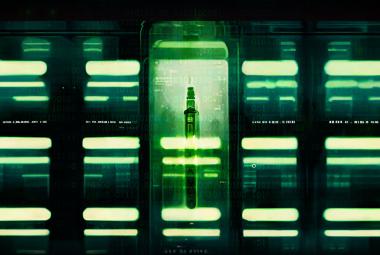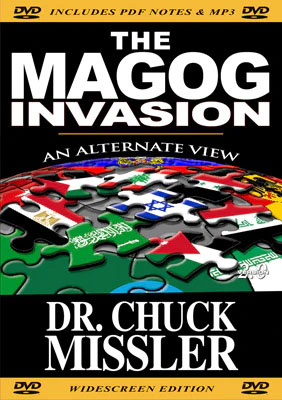Near the town of Tarhunah, Muammar El Gaddafi is again building a nerve-gas plant just like the one at Rabta.
Rabta
An earlier nerve gas plant, Pharma-150, near Rabta (about 50 miles Southwest of Tripoli) was shut down in 1990 after being threatened with attack by warplanes and after public identification of the European companies supplying the equipment. This plant produced, in two years, over 100 tons of mustard gas and other nerve agents.
Reconnaissance satellites have revealed that Rabta's equipment was then simply tucked away in underground bunkers about a mile away, reserved for a new mountain complex near Tarhunah, a town 40 miles Southeast of Tripoli.
Rabta II
This recent effort, "Rabta II," is being built into the side of a mountain where reconnaissance satellites cannot watch. The entrance is located in the middle of a long narrow valley between two mountain peaks. A two-lane road runs into the entrance. Less than 100 feet inside, the two lanes split around a giant rock wall and rejoin in a huge underground chamber (three stories high). Programming a precision-guided missile to twist its way through the entrance has been viewed as unfeasible. The Pentagon's Joint Special Operations Command (which oversees Delta Force and Seal Team-6) has concluded that a commando raid would be a suicide mission. It seems that only a direct hit by a nuclear warhead could take out the plant.
It is believed that the plans were obtained from Russia. Russia also has its own extensive developments in under-ground preparations: a new command center at Kovinski Mountain, east of the Urals; and at Yamantau Mountain, a mysterious underground development as large as the Washington Beltway. Although the Clinton Administration has had to certify to Congress that these things are innocuous (in order to clear our continued financing of them), they admit they don't know what is going on, and Yeltsin isn't being cooperative regarding disclosures. But significant resources seem to be committed to preparations for nuclear war.
Intelligence sources have been trying to curtail the completion of the Tarhunah complex for four years (Operation Rabta-II). It was supposed to be operational last year, but is behind schedule. At capacity, it is estimated that the plant could produce up to 1,000 tons of mustard gas, 90 tons of sarin, and 1,300 tons of soman nerve agent per year. Beyond any imaginable Libyan military requirements, these could be supplied to the growing markets supporting terrorism.
So far, the only viable approach has been to interdict the logistics required to support the construction. German 60-ton rotary boring machines (from Wesfalia-Becorit) employ large bits able to cut a hole six yards high and eight yards wide, which need constant replacement. German Chancellor Helmut Kohl has now cut off their spares. Agents have persuaded governments in Italy, Switzerland, Japan, Denmark, Austria, Britain, and Poland to cease deliveries. However, Gaddafi has developed alternate suppliers in China, India, and Southeast Asia. The CIA and other agencies have also disrupted the network of suppliers of critical equipment, but have only delayed the inevitable.
Last month, CIA Director John Deutch conceded that Libya is still building "the world's largest underground chemical weapons plant." U.S. Defense Secretary William Perry, during a visit to Egypt last month, said that he would not rule out military action to stop Libya from making chemical weapons.
Russian Warnings
Russia has made it known it would oppose any such move. The Russian Foreign Ministry has issued a statement saying that Libya had become the target of "direct threats not backed with evidence," and such threats "cannot but cause alarm" and would not promote stabilization in the Middle East. Moscow is continuing to rebuild its foreign policy and alliances around an anti-Western stance.
South Africa's True Colors
Alfred Nzo, South Africa's Foreign Minister, has come out in support of Libya and has called for the lifting of UN sanctions on Tripoli. At the end of a three-day visit to Libya last month, he declared the sanctions (imposed in 1992) were unjust.
Magog Positioning?
The world continues to head toward instability. The entire Western "system" is dependent upon the U.S. military superiority, which is fading. Terrorism - with weapons of mass destruction - will continue its attempts to destabilize the present regimes. The centroid of turbulence is the Middle East.
Phut in your Bible is usually translated "Libya" and is one of the allies of Magog (Russia) in the forthcoming invasion of Israel as described in Ezekiel 38. It continues to appear that this ill-fated invasion is on our immediate horizon. Stay tuned. Film at eleven.
Notes:
Sources:
- Chuck Missler, The Magog Invasion.
- Robert Waller, "The Libyan Threat to the Mediterranean," Jane's Intelligence Review, 5/96, p.225-229.
- Douglas Waller, "Target Gaddafi, Again," Time, April 1, 1996, p.46-47
- Intelligence Digest, Intelligence International Ltd, The Stoneyhill Centre, Brimpsfield,Gloucester, GL48LF, UK.
- Internet source: Electronic Telegraph - www.telegraph.co.uk, et al.






